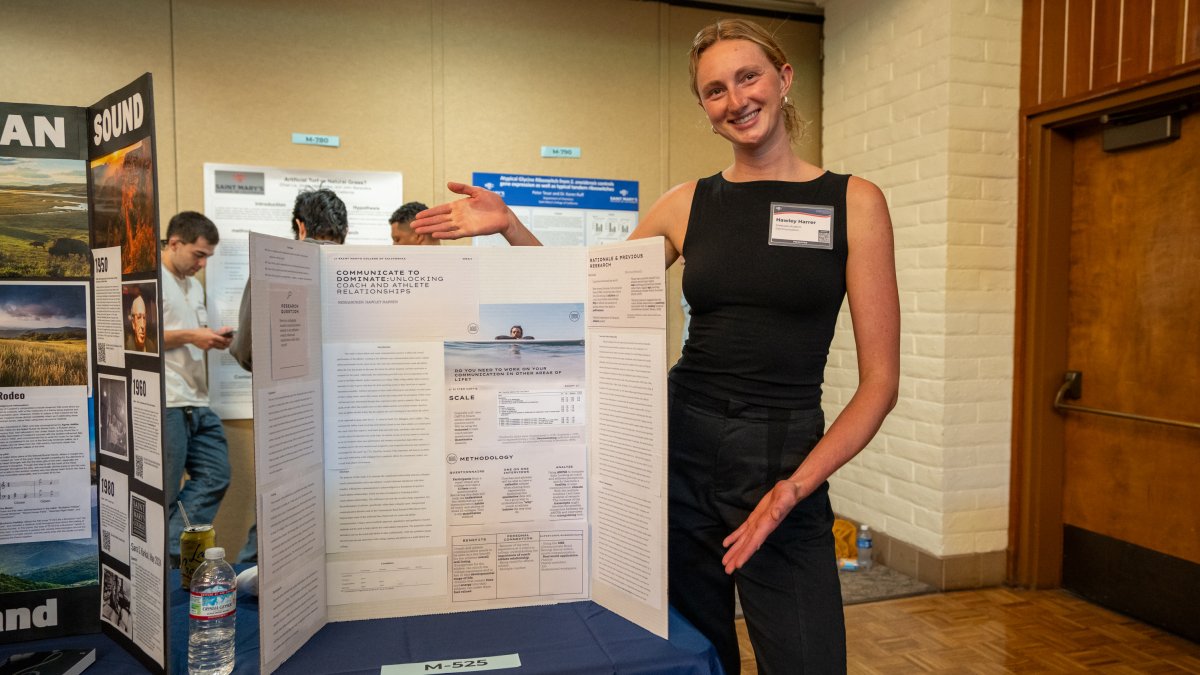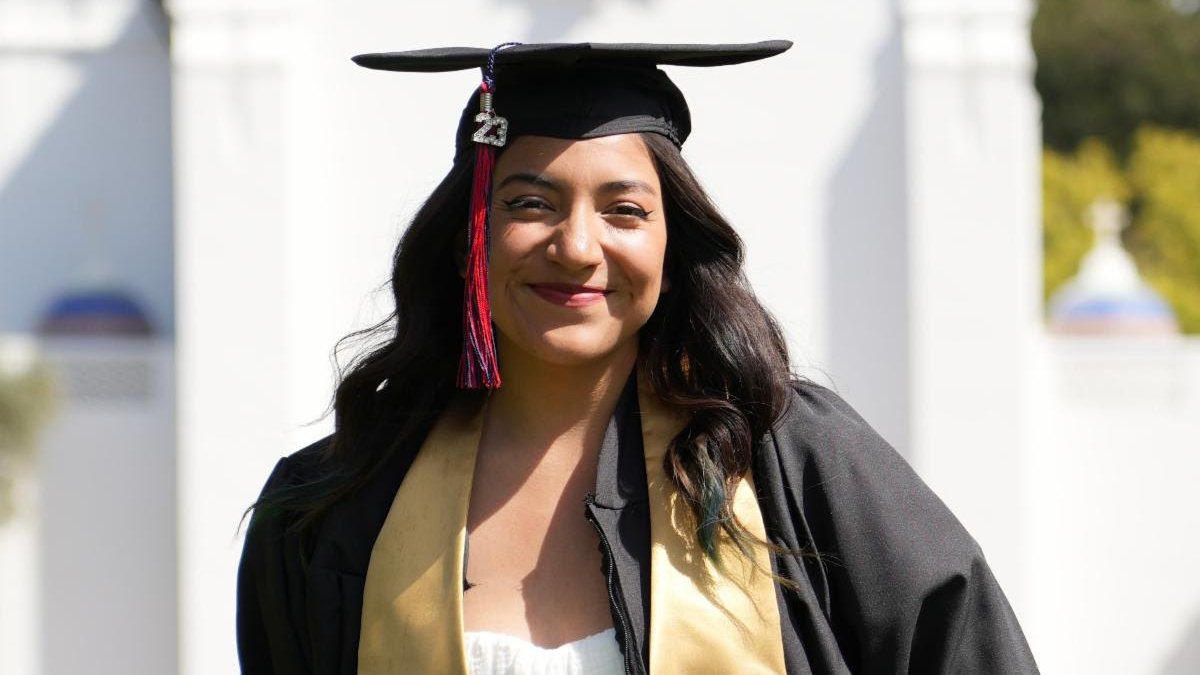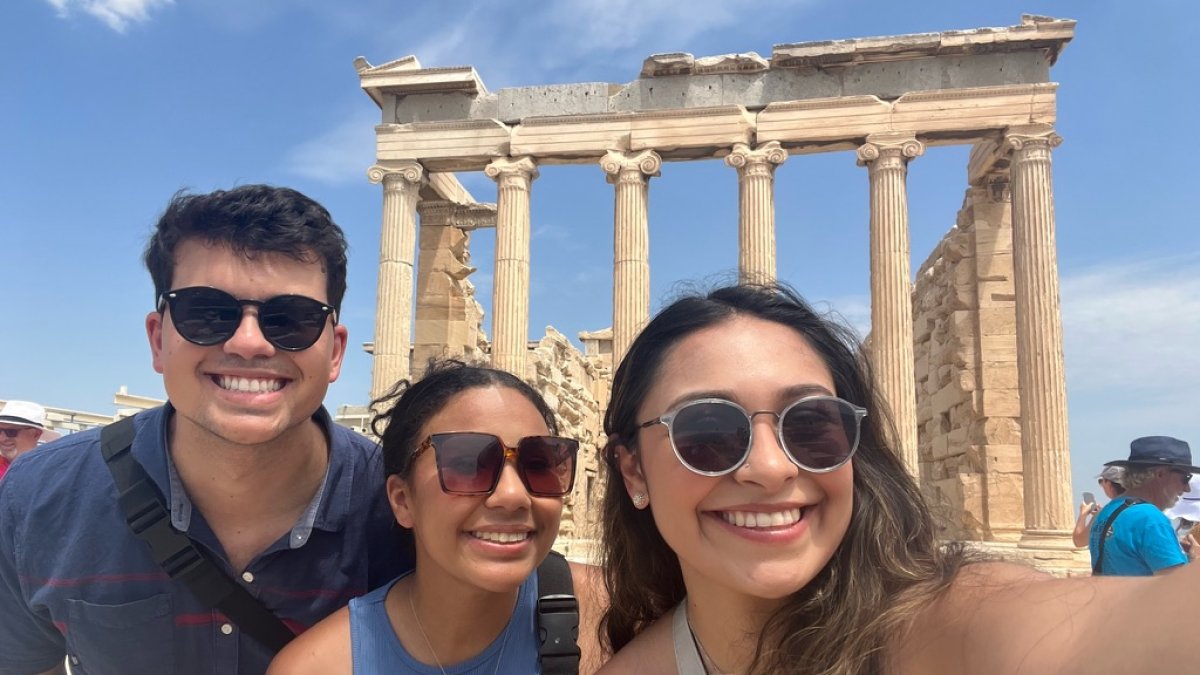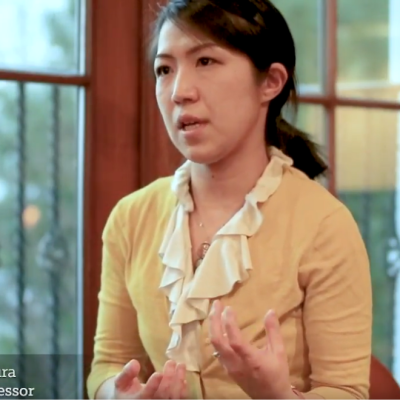MA in Communication Master's Degree

A One-of-a-Kind Master's Program
The Master of Arts in Communication at Saint Mary's College of California is the only one of its kind in the Bay Area. An accelerated one-year program focused on applied research, highlighting clusters of in-demand communication skills and competencies that give students an edge in the post-graduate job market or when applying to PhD programs for further study.
Whether you're a Saint Mary's graduating senior, a non-SMC student with an already-completed Bachelor's degree, or even a sophomore trying to plan out your career, SMC can help you get more out of your future with a variety of different course plans that include a traditional intensive Fall start or a Spring start that lessens the overall workload in the research portion of the program. Current Saint Mary's students have the option to complete two cross-listed graduate Bridge courses during their undergraduate studies to get a head start.
Want to get started? Applications are open now! See all of the important information about application requirements and deadlines at our Prospective Student page.

Connecting with People Through Understanding Data
At Saint Mary's, we place emphasis on shared inquiry and critical thinking, equipping our students to work, learn, and live in an increasingly diverse, globalized, and data-driven world.
Students participate in a year-long research project focused on a topic of their interest—allowing them to weave together communication theory, quantitative data skills, and their own career interests. Overall, our curriculum focuses on communication challenges and opportunities relevant to professional settings in any field or industry.
Cost-Effective and an Investment into Your Future
According to a recent piece from Harvard's Professional and Executive Development Division, employers in 2024 ranked analytical and creative thinking as the highest priority job skills they want on an application or resume—additionally, leaders across multiple industries agreed that communication and collaboration are at the very top of the list of "durable" skills that are only growing in importance, even with the increasing presence of AI and new technologies.
As the Summer 2021 Salary Survey from the National Association of Colleges and Employers reported, getting an MA in Communication provides an average starting salary boost of 46.8% over a Bachelor's degree in Communication. According to average salaries, that's just shy of a $20,000 premium for getting the advanced degree—given the cost of our program, that's an excellent return on the investment.

A World of Possibilities and Fulfilling Career Outcomes
After finishing the MA, our graduates have the flexibility to pursue a number of different career paths such as internal communications in an HR setting, working with nonprofits as a Communications Director or other high-level administrative position, or anything that realistically involves interfacing between people and data.
Saint Mary's alumni have gone into HR, institutional research, marketing, consultant work, and other careers that blend foundations in communication studies with other disciplines and industries—common career outcomes include content creation, international business, social services, fundraising/development, hospitality, public relations, and healthcare.
Explore Further

Gain International + Professional Experience
One aspect of Saint Mary's program that sets us apart from other schools is our Travel Externship—an opportunity for SMC students to take what they've learned and apply it on a global scale. Our grad students have the option of spending their final June in the program working on an intercultural communication project in partnership with an international organization—ultimately tying together everything they've learned through a truly memorable professional and international experience.
Communication Across Borders
Relevant Education for a Changing World
Dr. Makiko Imamura, Professor of Communication, discusses the importance of Intercultural Communication alongside Dr. Shawny Anderson, long-time Communication faculty at SMC who previously served as Dean of the School Liberal Arts, and fellow Comm Professor Dr. Aaron Sachowitz.
School and Department Information
Veronica Hefner, Ph.D.
Program Director, MA in Communication
vh10@stmarys-ca.edu
925-631-4861
Collin Skeen
Assistant Director of Admissions and Recruitment
cas38@stmarys-ca.edu
925-631-4190
